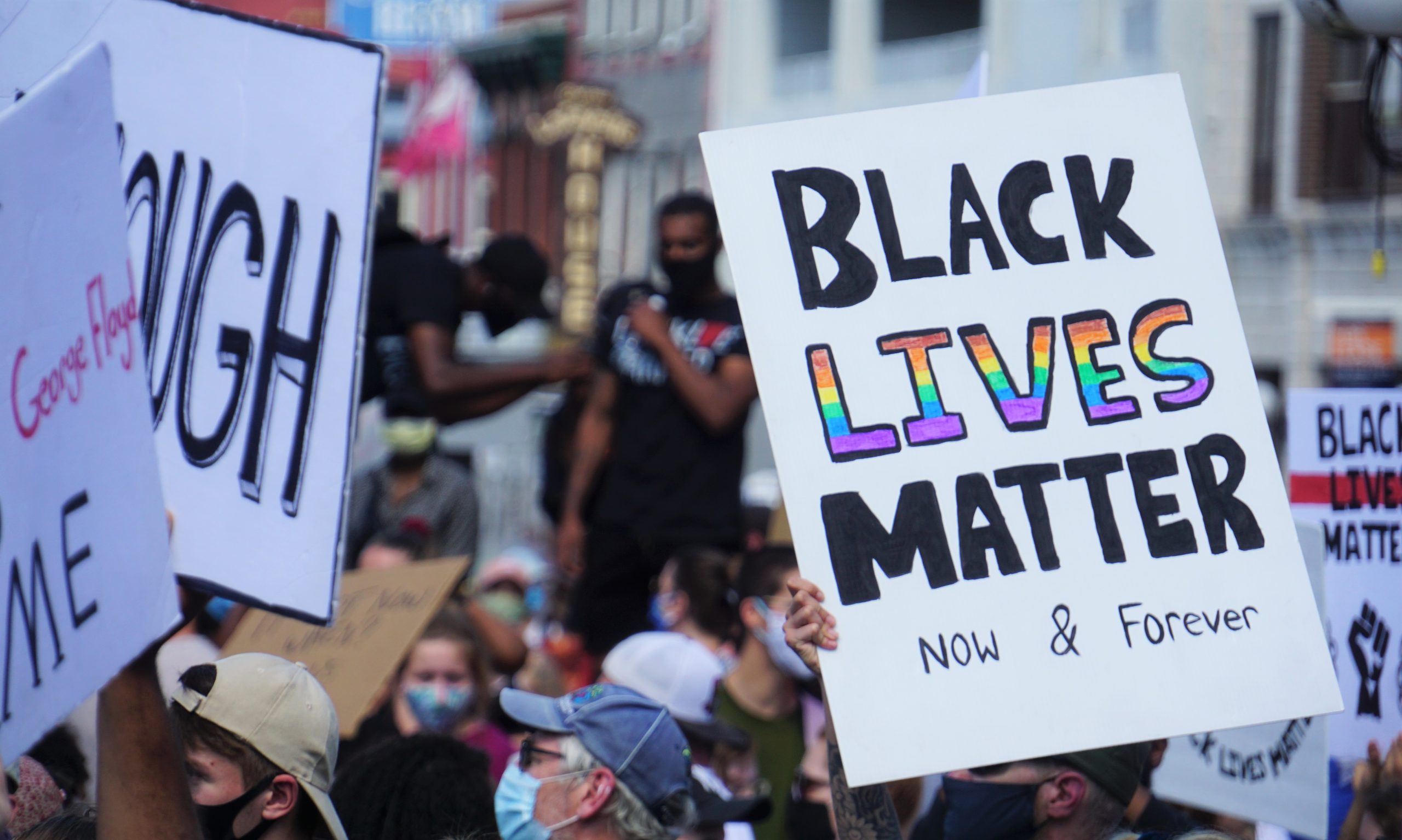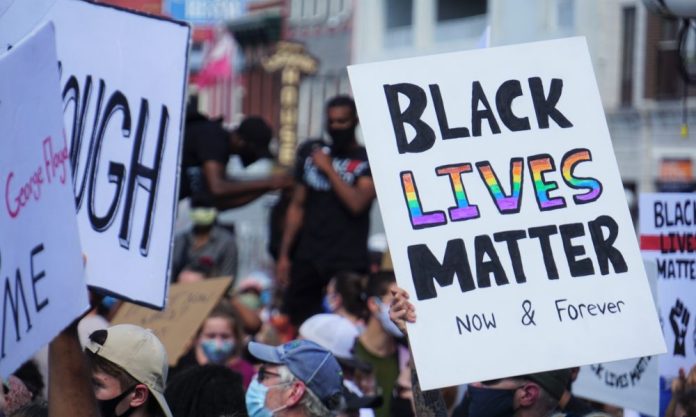
Here are comments from Coun. Jeff Leiper, MPP Joel Harden and MP Catherine McKenna that we gathered this month.
Kitchissippi Coun. Jeff Leiper
“George Floyd’s death in the US has re-opened wounds in the Black and other communities that are still raw in the wake of Abdirahman Abdi’s death in our ward in 2016. All around North America, citizens have as never before been confronted by the racism, and particularly the anti-Black racism, that is systemic in every facet of our society. In what I think is an unprecedented way, residents are open to acknowledging that racism, to understanding its deep roots in our country, and to taking action to end it. Canadians are receptive to learning, at least, about slavery in Canada, and how our colonial past and relationship between European settlers and Indigenous nations continues to traumatize communities today.
This month, thousands marched through the streets of Ottawa to demand an end to racism. Many have chosen to take their activism to social media and email, which is a legitimate start to a true solution. Many of those writing and posting are deeply literate in the subject. Many are arriving at the struggle as fresh allies who can no longer ignore the evidence of systemic racism in our society and want to help.
Ending systemic racism, and anti-Black racism, will take sustained work. Understanding its manifestation from deep historical roots, and the legal mechanisms that sustain it and that can end it has, for decades, been largely the work of Black activists and academics. For years, they have been working out of the mainstream spotlight. Their labour alone has not ended systemic racism, and nor will it in future.
Allyship begins with understanding. In recent months, I have made a deliberate effort to become more literate in the subject, reading books by authors such as Robyn Maynard, Desmond Cole, Ruth Holmes Whitehead and bell hooks, for example, to deepen my own knowledge of historical and current anti-Black racism. I’ve read some of the works by authors such as Tanya Talaga, Thomas King and Alicia Elliott recently to better understand our colonial past and its ongoing perpetuation in the context of relationships between Canada and Indigenous people. As an elected representative, it’s not enough that I hashtag a tweet. My ability to effect change depends on understanding, and I cannot foist that labour on a community of activists who are exhausted.
In Ottawa, we have recently created an Anti-Racism Secretariat under the leadership of Councillor Rawlson King that will be staffed to put City policies under the microscope. We want to build a City that is free of racism stemming from our own policies. Allies have an important role to play in pressing us to do so. To the degree that allies can do some of the intellectual labour that for too long has been done in isolation, those efforts will be more successful.
My commitment is to do the work required to be a better ally. I hope many in Kitchissippi will join me.”
Ottawa Centre MPP Joel Harden
“We are heartbroken by recent events in the United States, and rightfully so. The ugly scenes of racism and brutality from America are truly disturbing.
But let’s reject the “magical thinking” Desmond Cole notes is often present when we speak about race and racism in Canada. Let’s also ask hard questions of ourselves.
Let’s start by saying these names: Regis Korchinski-Paquet and Abdirahman Abdi.
On May 27, Regis fell from her balcony in Toronto to her death, from 24 floors up. Her family had called the Toronto Police for help, but what followed was a tragedy.
Nearly four years ago, Abdirahman died in police custody outside his apartment building in Hintonburg as his mother watched through the glass doors. He also needed help, and tragically he too lost his life.
Two cases of Black people with mental health issues, and two deaths in police custody, or with active police presence.
In late May, over 3000 people marched in Toronto to demand justice for Regis, and hundreds in Ottawa attended a rally in Dundonald Park to do the same — many held signs to remember Abdirahman. People want change and this is good. But I am left with unsettling questions about the pace of progress.
Why does Ottawa Police arrest data still reveal that Black and Middle Eastern people are stopped more than white people? Why does our criminal justice system disproportionately interact with racialized and Indigeous people?
Why did a 142-page internal report by the Ottawa Police in 2017 identify widespread fear and mistrust from many racialized communities? Why did the report note that parents of racialized children were “greatly concerned for the safety of their youth and any interaction with police”?
And why was a racist meme recently circulating online among Ottawa police that targeted Black and brown officers? Why did Sahada Alolo, co-chair of the Ottawa Police’s Community Equity Council, make the following remarks in the wake of these revelations:
“There must be something in their culture and in their practices that allowed for the creation of it [the meme] and the distribution of it with impunity, so there needs to be an overhaul and an investigation into that culture that allowed it.”
Answers to these questions will not come by embracing colour-blindness. Canada has many strengths, but it is not a place where everyone is given an equality of opportunity.
Canada began as a racist country, on the backs of Indigenous peoples, and we continue to struggle with racism. We must face that with eyes wide open.
One need only examine the working conditions of so many COVID-19 heroes: cleaners, personal support workers, grocery clerks, farm workers, meatpackers, nannies, and taxi drivers — a vast number of whom are Black or brown people who earn little despite an abundance of effort and skill.
Refusing to see race buries these realities. It should surprise no one that our criminal justice system grapples with the same racism that permeates our society.
So if we agree that Black Lives Matter, let’s refuse to be colour blind, and commit to an honest reckoning on race. I welcome your ideas about how that can happen.
Supporting Black Organizations in Ottawa
If you’re looking for ways to support organizations in Ottawa doing critical work to support Black folks and challenge anti-Black racism in our city, here are some that can use your time and money:
- Justice for Abdirahman Coalition (e-transfer donations can be sent to donations@justiceforabdirahman.ca)
- Jaku Konbit: http://www.jakukonbit.com/
- Britannia Woods Community House: http://www.britanniawoods.com/donate-2/
Regroupement ethnoculturel des parents francophones de l’Ontario (REPFO) https://repfo.ca/.”
“As Canadians, witnessing the events in the United States has been worrisome. I am deeply saddened about the news of George Floyd’s death last month. We must acknowledge that racism and discrimination are not exclusive to the U.S., it is a lived reality for Black, Indigenous and other people of colour in Canada. As a government and as a country, we need to do better, and work towards a more equitable society for all.
In the past few weeks, Canadians of all backgrounds have come together in support of changing the structures in our communities that have created systemic racism and injustice. Engaging in dialogue that acknowledges the need to address barriers and systemic racism in our communities is more important than ever. Education on addressing systemic racism is essential in practicing effective allyship.
This includes connecting with local organizations and businesses. For instance, here in Ottawa Centre we have a variety of Black owned businesses and organizations like Black History Month Ottawa, Jaku Konbit, and the African Canadian Association. There are many areas and opportunities for allyship when it comes to supporting these businesses and organizations.
After speaking with Councillor Rawlson King on his new role as Council Liason for the Anti-Racism and Ethnocultural Relations in Ottawa, and interviewing Chief Peter Sloly about his first 100 days as police chief for the Ottawa Police Service, both conversations provided vital lessons. There is a need to invest in initiatives that help build more inclusive communities. From city-specific programming supporting racialized residents, to the creation of a Hate Crimes unit, building safer and more inclusive communities for everyone in our city requires collaboration.
The value in investing in social infrastructure and communities is essential. Boys and Girls Club of Ottawa stands as an example of how government funding can go a long way in providing support for underprivileged youth who need it most. Here in Ottawa Centre, the Rochester Heights Clubhouse has been a major source in providing inclusive programs and services to our community’s youth.
There is still more work that needs to be done, and there are more important conversations that must be had. As Member of Parliament for Ottawa Centre, I am not only advocating and working towards building a more inclusive and safe community for all our residents, I am also listening in order to learn more about the various experiences of Black, Indigenous and other people of colour in our community, in order to best serve them.”
